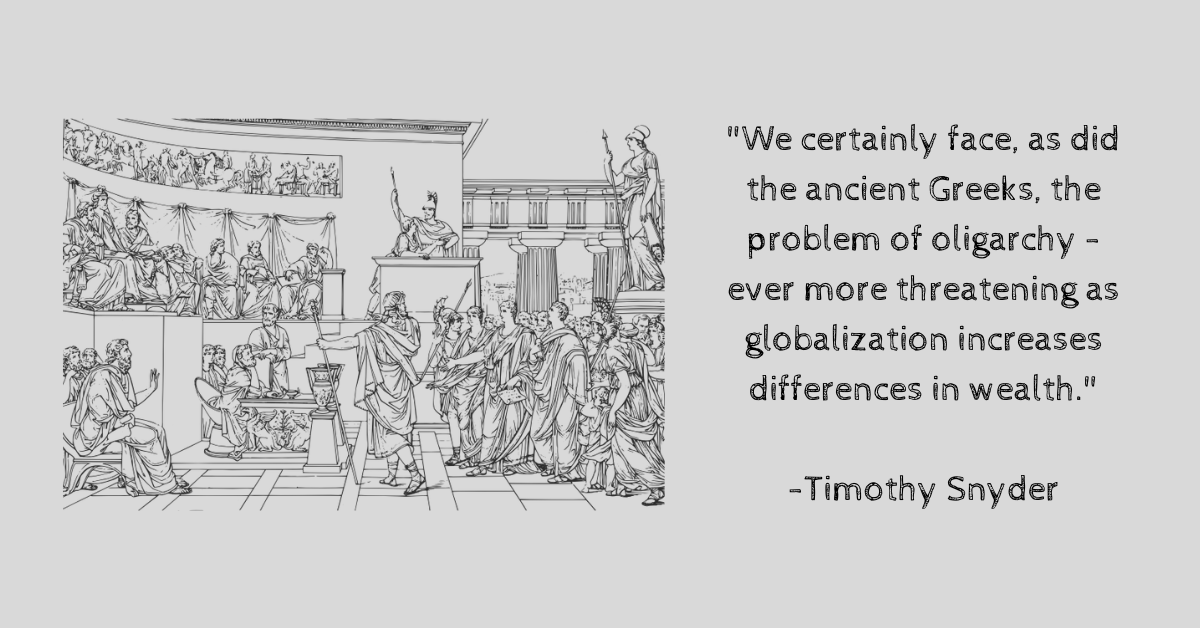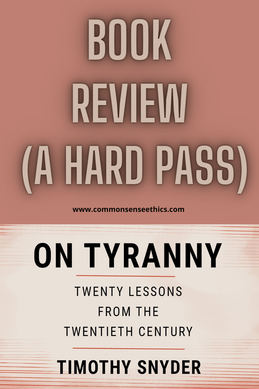Full Review: I really wanted to like On Tyranny, since the subject matter is so important, but the author makes the concept of tyranny almost laughable via his gross misjudgment of contemporary events, which undermines the entire work.
It's a shame, because there are some real gems in this book. Consider the following: "We certainly face, as did the ancient Greeks, the problem of oligarchy - ever more threatening as globalization increases differences in wealth."
This perspective on the suspension of democratic elections is even more patently ridiculous with hindsight, since there was never any suggestion that Trump would even suspend elections in 2020, when there was arguably an actual emergency in the form of Covid-19, let alone in 2018 when there was no ostensible emergency. And the author warns us that tyrants always use emergency powers to their benefit in order to consolidate their power! This is often true for real tyrants, but it is not true of Trump simply because he is not one, at least not when it comes to the laughable idea of him suspending elections.
(As an aside, Trump's 2020 lockdowns and other Covid polices, some of which continued into or worsened during the Biden era, were the most authoritarian events of my lifetime, although initially there was bipartisan support for them. One could make the tyranny argument based on these factors, though I doubt this author would.)
Moving on, we are also told that Trump was dangerous because he criticized the media. Need I say that criticizing the media is no indicator of tyranny. Corporations and institutions are never beyond reproach and they are also subject to the Iron Law of Oligarchy in the way that all complex organizations and democracies are. Moreover, derelict journalists are often an essential accessory to the authoritarian state. Many were executed right along with Nazi officers at the Nuremberg tribunal for example.
This assertion that criticizing the media is somehow a bad thing is likely predicated on the (mostly false) assumption that we still have a free press. Yet I (and many others) have been arguing for years that we in fact have a derelict, captured, corporate press beholden to various advertisers and special interests.
I have tried to make it clear in my writing that much of the corporate media have been derelict since long before Trump took office, and I think that this is clear to us anti-authritarians and nonpartisans who can look at current events with some degree of objectivity.
Overall, it is hard to take seriously a scholar who so grossly misjudged recent history and peppered a work on such an important topic with absurdity. On Tyranny is a hard pass.
~
Read Next:
How the Left-Right Political Spectrum Deceives Us
How Political Parties Dumb Us Down
2 Less Obvious Reasons For Journalistic Malfeasance











